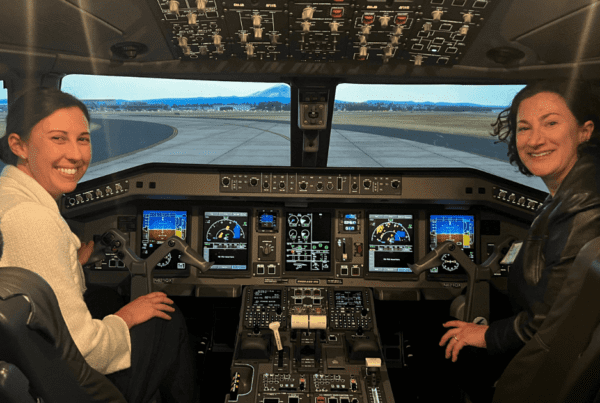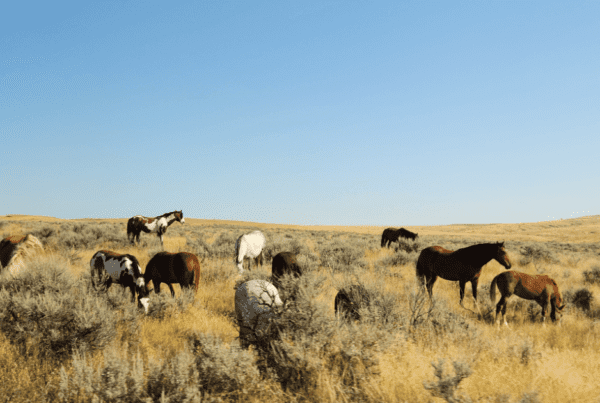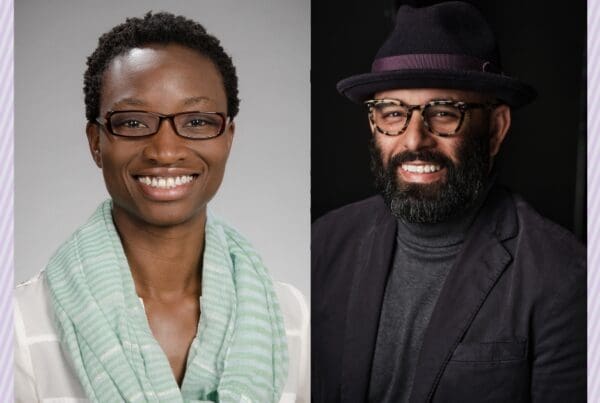Highlights | Renewing a commitment to tribal health
- The UW School of Medicine has formally partnered with the Lummi Nation.
- The partnership allows medical students and trainees to learn at the Lummi Tribal Health Center.
- Learning about tribal medicine is important for all students, especially those who want to serve Native communities.
The UW School of Medicine recently solidified a formal partnership with the Lummi Nation that will teach medical students and trainees how to care for Native American people and communities.
Though an informal relationship has long existed, the new, legal contract formally recognizes the sovereignty of the tribe and opens up more training opportunities for students, says Millie Kennedy, JD, Tsimshian, tribal liaison for the Indian Health Pathway (IHP) and the Office of Healthcare Equity (OHCE).
Building community, building trust
The School already has formal agreements with several tribal nations. But Kennedy and Jason Deen, MD, Blackfeet, a cardiologist, pediatrician and director of IHP, realized that recently students haven’t been training at tribal health centers as often — a consequence of the pandemic — and wanted to renew existing ties. Thus, Kennedy and Deen met with tribes, leading to new agreements with the Lummi Nation and the Navajo Nation in Tuba City and also to revitalized existing agreements.
When working with tribes, it is important to recognize that they govern themselves and that only Congress and applicable federal laws may have authority over them, Kennedy says. It is also important to meet in person whenever possible, which Kennedy and Deen did by visiting the Lummi Reservation and touring the clinic there directed by Dakotah Lane, MD, Lummi.
“It’s important to show up in person, so they actually know the people they’re dealing with. The tribe needs to be able to trust us and we need to prove to them we can come through,” Kennedy says.
The goal of the revitalized partnership isn’t to impose our organizational values on the tribe, but to listen to what the tribe needs and have that dictate our work with them, Deen says.
“Partnerships are vital for us to be respectful to these tribal communities and meet them where they are without expectations,” Deen says. “The days have gone that we, as the ivory tower, expect these communities to partner with us. Now, it’s us approaching them to say what we can offer them as they accept and train our students. It shows mutual respect in having these legal agreements.”
For doctors at the Lummi Tribal Health Center, the benefits of the partnership go both ways. They look forward to mentoring students and teaching them about tribal health, plus connecting with the medical community at the university.
“We’ve always had some connection with UW, so revamping what we have and creating a stronger link is extremely important for our health system. We firmly believe that providing opportunities to future doctors to interact with tribes will open perspectives on how to work with underserved communities,” Lane says.
“It’s really important for us to stay connected to the learners because they also teach us a lot; they bring fresh energy that is good for the clinic. And it’s important for students to get exposed to tribal medicine and foster interest in the tribal health system so we have more people who go into residency planning to work in tribal health,” says Zoe Taylor, MD, a family medicine physician at the Lummi Tribal Health Center who completed her residency at UW School of Medicine.
Lane, Taylor and the other doctors at the Tribal Health Center are being appointed as affiliate faculty, which gives them access to UW’s medical literature databases, clinical resources, biomedical libraries and more.
Kennedy, Deen, Lane and Taylor are hopeful for the future of the partnership and have many goals for it, including:
- Having more students in IHP and the Rural Underserved Opportunities Program (RUOP) rotate at the Lummi Tribal Health Center.
- Offering Native students knowledge that they can bring back to their own tribes.
- Educating non-Native students about caring for tribal communities and cross-cultural communication.
- Fostering interactions with medical students and trainees, resulting in tribal community members feeling seen, heard and supported.
- Opening up dialogue, knowledge sharing and opportunities to deepen connections between UW Medicine and local tribes.
Kennedy and Deen also worked on revitalizing a formal partnership with the Tulalip Tribes to develop a training program in Traditional Indian Medicine, coupled with the Nakani Native Program as a nonprofit partner.
One Native student’s experiences working in the community
The renewed partnership came about in part due to the determination of one current medical student, Jason Finkbonner, MS4, Lummi, to serve his own tribe. He initially wanted to study law but realized that a punitive approach wasn’t what his community needed, but rather someone who could provide medical, mental health and addiction help. After returning to college for a degree in biology, he was accepted to medical school at UW School of Medicine.
It has been like coming full circle, he says, because his initial inspiration to attend medical school came from working at the Lummi clinic years before. Recently, in searching for a mentor within his chosen specialty of psychiatry, he learned that the Lummi clinic is one of few tribal clinics in the country that employs a psychiatrist full-time.
“I reached out to the School of Medicine, the tribal health clinic, Millie Kennedy and the Psychiatry Department. I said, ‘I don’t think this elective has been done before but I’m going to do this, so let’s make it happen,’” Finkbonner says. “There were some hoops to jump through, but everyone was really helpful in making it go smoothly.”
During his four weeks at the clinic working with George Vana, MD, Finkbonner met with patients in the outpatient clinic and in telehealth visits and helped implement a community health program called New Journeys, which will provide services for people experiencing first-episode psychosis.
Next up, in January, Finkbonner will also be the first student in the renewed Traditional Indian Medicine elective with the Tulalip Tribes, something he is looking forward to.
“It will be a unique experience, having exposure to traditional ways of healing that are culturally specific, something that not many people have access to in the main School of Medicine curriculum,” he says.
In fact, all work with tribes, even if its focus is Westernized, provides students with unique ways of approaching medicine, Deen explains.
“It shows students there are multiple avenues for these communities to achieve better health. For Native communities, that’s usually focused on culturally sensitive care geared toward communities rather than the individual,” he says. “There’s a lot of attention and research and money paid toward individual Brown and Black people to have access to certain therapies, but that isn’t the ideal model for care in a lot of communities. It is better if we focus on community initiatives to raise the health of the community in general, which creates a ripple effect for individual health.”
There are things students can learn from tribal clinics that they won’t learn elsewhere, since tribes are self-governing and tribal healthcare systems don’t function the same way the U.S. healthcare system does. That means fewer barriers that prevent patients from getting the care they need, Taylor says.
“Here at Lummi, anyone can get care, and it’s free. There are tons of wraparound services, too: social work, a food bank, a shelter, an early learning center, behavioral health, dental — the list goes on. As a primary care doctor, you rely on those things a lot. Everything is integrated and accessible and part of the community. It’s an amazing place to work; you can do more for patients when they have these other resources available,” she explains.
While tribes and tribal members still face healthcare disparities that should not be glossed over, it is also important to recognize that the way tribal clinics deliver care can be a model for others to learn from — for example, the Lummi Nation’s response to the COVID-19 pandemic was more successful and robust than the response of many state governments.
For Lane, who remembers Finkbonner from when the latter was in high school, Finkbonner is a perfect example of why the partnership between UW School of Medicine and the tribe is so important. It shows how meaningful it can be to return to the community you grew up in to learn and practice medicine — which is something Lane knows a lot about.
Initially studying electrical engineering and working in the tech industry, Lane realized those skills weren’t things he could easily bring back to serve the people on the Lummi Reservation and in Bellingham, both places where he grew up. After medical school at Cornell and a residency in Florida, he returned to his hometown in 2016 and has been there ever since. There are certainly challenges — one being the awkwardness of running into your patients out and about, say, at the grocery store, which Lane humorously calls his “second office” — but also many opportunities.
“For a community used to having only white physicians, to see one of their own walk in has a very uplifting feeling,” he says.
This is the ultimate goal of the partnership: to inspire more doctors to serve tribal communities. Some of them may not be Native, but for Native students who earn their medical degrees, it’s an opportunity to come home again.
“Growing up on the reservation, you’re part of your family but also part of an extended family — your tribe. All my aunts, uncles and cousins lived around us, and we were always together and doing things for the betterment of the group,” Finkbonner says. “It wasn’t so much setting out to do something for myself, but about, ‘How will what I’m doing contribute to everyone around me?’ A mentality in the tribe for those who choose to leave and seek higher education is that eventually, you want to come back and take what you’ve learned and help the people here.”


